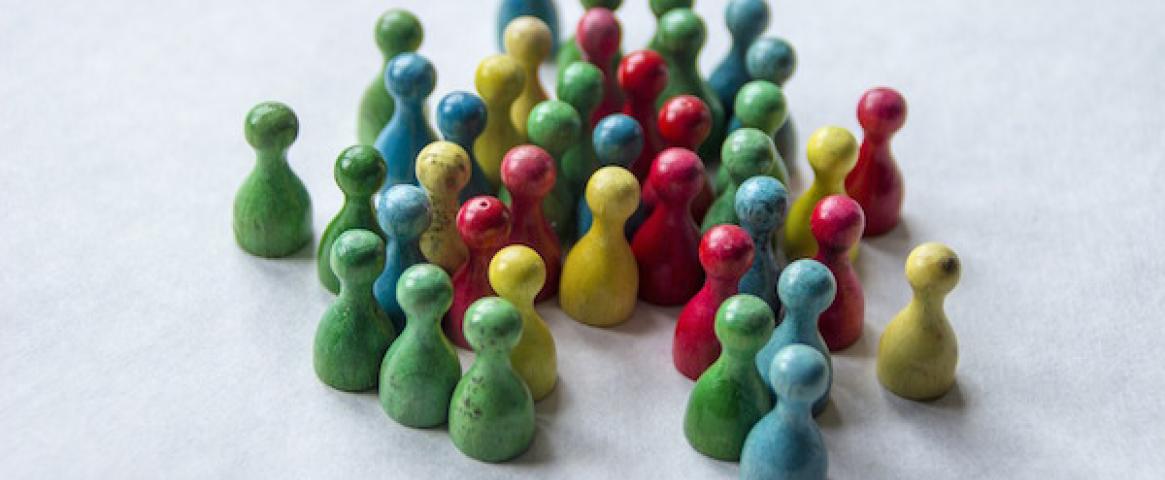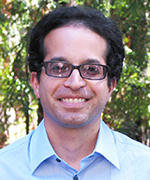Later this year, NASW members will vote on the 15 NASW board members, who will serve from October 2020- October 2022. Read on to meet the candidates. All regular NASW members will receive a personalized email with instructions and a link to the online voting proxy in late summer.
Here are the candidates:
President: Jill U Adams, freelance journalist
My NASW membership allows me to be part of a wonderful, career-affirming community. It also provides me with numerous opportunities for professional development and loads of resources for writing, information gathering, and understanding my place in the ever-changing media landscape. An enormous amount of volunteer effort goes into making our meetings and online resources useful for members, and yet, there is always room for improvement. In our new virtual-meeting world, I'll work to find ways to bring community to our far-flung members. I want to continue to make our organization more welcoming to science writers from underrepresented groups and advance our practices in diversity, equity, and inclusion. I’ve worked on a variety of NASW committees, including freelance, finance, governance, programs, and information access committee. I’ve served on the NASW board for four terms, and I welcome the chance to serve as the organization’s president. I am a freelance writer and editor.
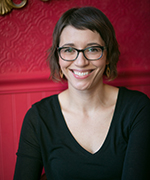 Vice president: Cassandra Willyard, freelance journalist
Vice president: Cassandra Willyard, freelance journalist
My first term on the NASW board was both challenging and immensely rewarding. I am especially proud of the work we did to streamline and update the complaints process and provide better protections for those who fear harassment and retaliation. The next couple of years will bring unprecedented challenges for NASW’s members. Layoffs have already begun, freelance budgets are shrinking, and I know I’m not the only one trying to juggle a career and childcare. I’m running for reelection because I want to find ways to help our members thrive during this time of hardship. And as a new member of the Programs Committee, I look forward to helping plan NASW’s first virtual conference. While we’re all disappointed that we can’t see our colleagues in Boulder, an online meeting gives us the opportunity to include members who have never before attended due to financial or other constraints. And the lessons we learn in 2020 will help us make future meetings even more inclusive.
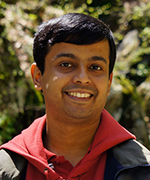 Treasurer: Sandeep Ravindran, freelance science writer
Treasurer: Sandeep Ravindran, freelance science writer
I’m running for my second term on the Board, and have also had the pleasure of serving as the NASW secretary for the past year. As a member of the finance committee, I’ve worked to balance the organization’s budget while prioritizing events that benefit our membership, including fellowships, grants and conferences. If elected treasurer, I will continue to work with the finance committee and executive director to maintain the organization’s long-term fiscal health while finding ways to support a wide variety of programs for our members. As part of a working group on diversity, I helped recommend best practices and policies that NASW could adopt to support diversity and inclusion within our organization and community, and am now involved in implementing these recommendations. As part of a working group on membership, I helped come up with additional benefits that NASW could offer its members. I was also part of a working group that explored ways to improve NASW members’ online engagement, and helped draft an online code of conduct and recommend changes to email discussion groups. I have helped organize the Power Pitch and Pitch Fest events at several NASW meetings, and I am keen to provide more such opportunities for NASW members to develop their professional skills and networks. I would also like to provide more mentorship and support to those new to our field, particularly with the aim of increasing diversity and giving voice to underrepresented perspectives. I strongly believe that a greater diversity of backgrounds and experiences can only make NASW stronger. Before becoming a science writer, I completed a microbiology PhD at Stanford and studied science communication at UC Santa Cruz. I worked as a science writer for the Proceedings of the National Academy of Sciences for a couple of years before becoming a freelancer. I’ve written for a variety of publications including Smithsonian, National Geographic News, Nature, The Scientist, Wired, and Science News for Students. I am eager to continue contributing to NASW, and would welcome the opportunity to serve as treasurer and continue as a member of the Board.
Secretary: Kendall Powell, freelance science writer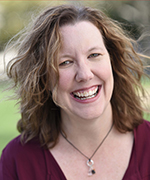
I am running for NASW Secretary to continue and expand my service toward improving the professional lives of all of our members. Based near Denver, I’ve been an NASW member and freelancer for 17 years. I write for Nature, Science, and Knowable among other publications. I am a contributor to both The Science Writers’ Handbook and The Craft of Science Writing. I’ve served as co-chair for the Freelance Committee for the past seven years and on the Board for the past four. During that time, I have helped develop several member resources (including the Compensation Survey, Fair Pay Tip Sheet, the Work From Home Like a Pro tip sheet). In the past four years, I’ve worked with my fellow Board members, officers, our dedicated NASW committees and the executive director to usher in new policies that make NASW a more diverse, professional, respectful and stronger community. These include initiatives such as having a meeting Code of Conduct in place for our events, adding summer Diversity Fellowships and Graduate Student Travel Fellowships, redesigning our website, adding community managers to our discussion lists, and making changes to our bylaws to handle complaints about misconduct more effectively.
If elected, I will continue to serve as NASW’s liaison to the Authors Coalition of America, which brings in monies to NASW through international reprographic rights agreements. Through that group of creators’ groups, I have forged connections that have allowed NASW to set up the grievance partnership with the National Writers Union, to advocate for writers’ rights across the U.S., and to get information to our members regarding COVID pandemic economic relief for freelancers. I’m an advocate for the freedom that comes with freelancing and that freelancing doesn’t mean “for free.” I will always advocate for the right of every science writer to make a decent living doing what we love to do. I look forward to continuing this work on behalf of all science writers.
Member-at-large candidates:
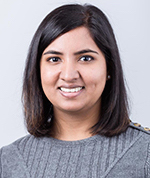 Shraddha Chakradhar, reporter, Morning Rounds writer, STAT
Shraddha Chakradhar, reporter, Morning Rounds writer, STAT
I'm running for the NASW's Board to continue my work promoting diversity across science journalism, and to help provide opportunities to those who are underrepresented in our community. I have been an NASW member since 2013, and most recently served as co-chair of the NASW’s Diversity Committee. During my three-year tenure, I helped launch the Summer Diversity Fellowship to financially support student and early-career journalists as they try to complete an internship in an expensive city. I also helped launch the Diverse Voices series along with The Open Notebook to highlight underrepresented voices and experiences within science writing. I also want to serve on the Board to support our dedicated group of members. My experience as a science journalist has included editing and reporting as well as multimedia production and social media management (my current gig is as a reporter for STAT in Boston). And this range has given me insight into the various ways in which we all work to communicate science and the resources that we need to do our jobs more effectively. NASW and the resources it provides were crucial to helping me find a footing in science journalism, and I would love the opportunity to give back to our community and boost the next generation of science communicators.
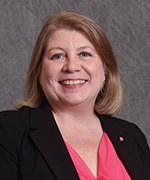 Jennifer "Jenny" Cox, freelance writer
Jennifer "Jenny" Cox, freelance writer
I genuinely enjoy helping others achieve their goals. Volunteering on the NASW Board and on committees allows me to do just that. I hope to be reelected so I can continue to support efforts to increase diversity and inclusion, improve member access to the tools necessary to achieve their professional goals and help all members feel welcome and valued. During my short time on the Board, I have volunteered to help develop a “how to” for program proposals, attended the Freedom Forum Train the Trainer workshop on workplace integrity, and learned how the Board works to support members. This year, NASW members face new uncertainties and challenges brought on by the SARS-CoV2 virus. As a result, our leadership needs to find innovative ways to support our members, many of whom are on the front lines providing information to the public that can save lives and improve outcomes. I believe it is vital to have Board members who are fully engaged and willing to explore new possibilities, and I am that person.
Having been a science writer for more than 30 years, first as a PIO and now as a freelance writer, I believe I have the knowledge and the skills that will help the Board during these very stressful times. My background includes working as a PIO at NC State University, where I was an award-winning institutional science writer, editor and communications director, and as a freelance writer. I have served on the program committee for seven Science Writers conferences and served as NC State’s representative on the organizing committee for Science Writers 2012. I was chair of the communications committee for the 10th World Conference of Science Journalists, and I served on the working group to revamp communications and hire a new communications officer for NASW. In 2018, I was honored to receive the Diane McGurgan Service Award. These opportunities have been an adventure and challenge that has enriched my experience, and, I hope, has enriched the NASW experience for all members.
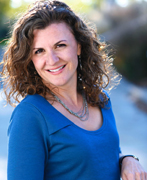 Jennifer Cutraro, Science Storytellers and freelance
Jennifer Cutraro, Science Storytellers and freelance
When I walked into my first ScienceWriters meeting in 2002 – before I even knew what my career would look like — I knew I’d found my professional home. Today, I’m happy to see that home adapting to better reflect the needs of its membership. I recently served on the committee for membership identity and values, which aspires to make NASW inclusive of science writers of all stripes. I will bring to the board a unique perspective on the wide variety of ways people write and otherwise communicate about science today. My own experience represents that diversity: I’ve been a science textbook editor, university PIO, freelance journalist, PBS KIDS project director, and now, the founder of Science Storytellers, a program that marries science journalism with engagement. I will also continue to advocate for those new to the profession as a member of the education committee and former director of the NASW Internship Fair, for which I received the Diane McGurgan Service Award in 2010.
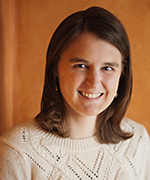 Laurel Hamers, science writer, Howard Hughes Medical Institute
Laurel Hamers, science writer, Howard Hughes Medical Institute
As a college student, NASW convinced me that I wanted to be a science writer. In the six years since, it’s helped me find jobs, mentors, and friends. I’m running for the board because I want to help shape the future of NASW and ensure that it continues to be a valuable resource and supportive community for all science writers.
I’ve served on the Education Committee since 2015, helping plan student programs at meetings and acting as a peer mentor to young journalists. As a board member, I’d work to further expand support and training opportunities for early-career writers, even as they graduate from student programming.
I’m currently a writer and editor at the Howard Hughes Medical Institute; previously, I’ve written for newspapers, magazines, and scientific societies. The variety of paths that bring people to NASW is one of our organization’s greatest strengths, but effectively serving all members simultaneously can be challenging. I’d bring an inclusive, empathetic perspective to the board, and a commitment to thoughtful discussion around these often-complex issues.
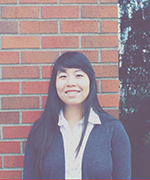 Jane C. Hu, independent journalist
Jane C. Hu, independent journalist
As I began my science writing career, resources like Words Worth and NASW’s member compensation survey helped me develop realistic expectations about the challenges I’d encounter. What’s more, the community I’ve found — online and at annual meetings — has been invaluable.
Currently, I’m an independent journalist; previously, I’ve worked as a science communicator for a research institute’s outreach team, and as a science communication course instructor. Each of these experiences have given me perspective into how each of us plays an important role in communicating science to the public.
For the last 5 years, I’ve served on the board of the Northwest Science Writers’ Association, including 2 as president. During my tenure, I worked with the board to plan events and tours for our members, as well as to launch new programs, including a mentorship program and a science writing award. I hope to bring that energy and experience to NASW. In particular, I’m passionate about elevating voices from early career writers and writers belonging to underrepresented groups, and finding new ways to support the work of regional science writing groups.
Kathiann M. Kowalski, freelance journalist
NASW and its members face both new and ongoing challenges: How can we support our members in an era of physical distancing? How can we help members thrive despite limited publishing budgets and an uncertain economy? Besides increasing diversity by the numbers, how can we truly engage members from different backgrounds? And how can we encourage respect for our members and profession even as some politicians and special interests reject science and attack the free press? I’m currently on NASW’s membership committee and want to do more to help. As a longtime freelance journalist, I’ve written for Energy News Network, Science News for Students, Front Vision, Cobblestone, and other publications. I’ve also written 25 books on a range of topics. Before turning to journalism, I was a partner in the environmental practice group for a multinational law firm. My law degree is from Harvard, where I was a note editor for the Harvard Law Review.
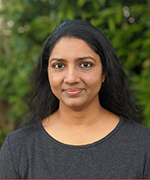 Jyoti Madhusoodanan, freelance journalist
Jyoti Madhusoodanan, freelance journalist
The NASW community has been vital to my career since I ventured into science writing ten years ago. I’m running for the board in an effort to help extend this support I’ve received to others, especially those new to the field. I’ve worked in corporate communications for a life sciences startup and as a press officer for the scientific journal PLOS ONE. I graduated from the UC Santa Cruz Science Communication program in 2014, and now freelance for Nature, Undark, Discover, Chemical & Engineering News and many other outlets from my home in Portland, Oregon. I currently co-chair NASW’s Awards committee and work with the recently formed Standing Ethics committee. I’ve also volunteered to mentor students and early-career writers over the years. As part of these efforts, I have worked to find ways to better support regional journalism and expand NASW’s community to more fully represent the diversity of the science writing world. I’d be honored to extend these efforts by serving on the Board.
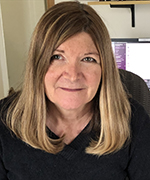 Marilynn Marchione, chief medical writer, The Associated Press
Marilynn Marchione, chief medical writer, The Associated Press
My reason for seeking to join the board is simple: I greatly value NASW's work to strengthen our profession and want to help further that goal. I've had a long and good career and I hope to help others working in a challenging media environment now. Before joining the Associated Press in 2004 and becoming its chief medical writer, I worked for three large urban newspapers and a university news service. I've had many journalism fellowships. Opportunities like these are scarce now, making NASW's education and training efforts keenly important. I've served on the Finance Committee for about two years where I've sought to help NASW become more financially secure by exploring new ways to increase revenue, trim costs and consider collaborations with other groups on areas of mutual interest. I have been a frequent speaker, moderator and session organizer at NASW ScienceWriter and CASW New Horizon conferences. I received the Victor Cohn Prize for Excellence in Medical Science reporting in 2010. If elected, I hope to advance NASW's efforts to enhance professionalism, to help members in practical ways and to strengthen the organization's ability to sustain itself.
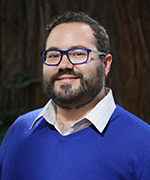 Rodrigo Pérez Ortega, science journalist, Science magazine (until July 2020)
Rodrigo Pérez Ortega, science journalist, Science magazine (until July 2020)
I first found out about NASW when I was an undergraduate student in 2015. Since then, NASW has been instrumental in my path to become a science journalist. Through the years, NASW has provided me with countless professional development opportunities and several fellowships, as well as mentors, colleagues and friends. And now it’s time to give something back. If elected to the board, I would bring a fresh and diverse perspective, but also a genuine will to help others achieve their professional goals through NASW resources and tools.
Since last year, I have been co-chair of the NASW Diversity Committee, which aims to make every member from underrepresented minorities feel part of our community. Together with the committee members, we have maintained current projects—such as the NASW Diversity Summer Fellowship—as well as initiated new ones to help writers cope amidst the COVID-19 crisis.
In my career, I have been a staff writer and editor for newspapers and online magazines, and a freelance journalist. I have been a graduate student and also did a short PIO stint, so I have been in the many worlds of science communication. My experience has helped me understand the needs of both young and veteran members of our community. Now, I would like to bring my enthusiasm and eagerness to help others to the NASW board. It would be an honor to serve you.
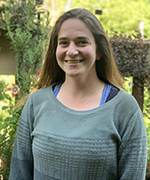 Erin Ross, writer/researcher, science and environment, Oregon Public Broadcasting
Erin Ross, writer/researcher, science and environment, Oregon Public Broadcasting
I moved home to work at Oregon Public Broadcasting because I knew, intellectually, that local journalism was important. OPB is a regional NPR and PBS affiliate, and I wanted to write and make videos about science and support the community I grew up in. But the COVID-19 pandemic has made the relevance of local news explicitly clear in ways I could never have imagined. Because of my experience as a science communicator, I have been able to serve as a resource for my coworkers, my community, and my state. I never really understood how much in-depth knowledge of our beat matters, until now.
So many issues – not just COVID-19, but climate change, public health, and conservation, warrant deep, regionally-focused science coverage. If I am elected to the NASW board, I will act as a voice for local and regional news within the organization, and will advocate for resources for local journalists who frequently find themselves up the science writing stream without a paddle. NASW has been an invaluable resource during my career, and I want to share it with others. My work as an NASW mentor has been some of the most rewarding work I’ve ever done, and it would be a privilege to serve on the board and give back to an organization that has given me so much.
I graduated from the UC Santa Cruz Science Communication Program in 2016. I did the internship rounds in DC, and later wrote for Axios before moving home to Oregon.I have been an active member of NASW since 2015, and was recently elected to the board of the Northwest Science Writers’ Association. I currently serve on the NASW journalism committee, and moderate the NASW-COVID-19 mailing list.
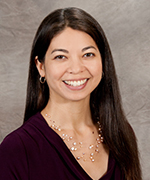 Jill Sakai, Science writer & editor, freelance & University of Wisconsin–Madison
Jill Sakai, Science writer & editor, freelance & University of Wisconsin–Madison
This year’s major health, environmental and economic crises have highlighted both the importance of accurate, accessible science writing and the challenges faced by those who produce it. I feel fortunate to have spent many of my 14 years in NASW supporting our members and our mission by serving on various committees and, currently, on the board, and I hope to continue in these roles. On the awards committee, I’m honored to help recognize the best work of members of our community through the Excellence in Institutional Writing Award program that I helped establish and now co-manage. On the governance committee, I am helping to examine NASW’s structure, policies and processes to ensure that the organization remains strong even as the field of science writing continually shifts. In the past two years, we have undertaken the creation of a new standing ethics committee and have strengthened our codes of conduct to make sure NASW is a safe and welcoming community for science writers of all backgrounds. If re-elected, I will continue working to improve members’ experiences and the value of the organization to science writers and the broader science writing community.
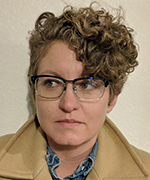 Sarah Scoles, freelance journalist
Sarah Scoles, freelance journalist
When I attended my first ScienceWriters meeting in 2015, I was afraid I would spend the whole time hiding in a corner alone. But the conference—full of welcoming, helpful colleagues—netted me new contacts, new writing opportunities, new (remote) coworkers, new friends, and a path forward in science journalism. I am running for the board because I would like to pay that experience forward, and develop ways the organization can become even more helpful, diverse, and proactive in its efforts to better the lives—and work—of science writers.
I have been a freelance journalist since 2014, was a contributing reporter at Wired for four of those years, and am a current contributing editor at Popular Science. I’ve written for a variety of publications, including Scientific American, The Verge, VICE, Science, and Outside. As a longtime member of the Freelance Committee, and its current co-chair, I’ve helped organize the Pitch Slam and Power Pitch sessions at NASW meetings, curate and cultivate web resources for freelancers, and improve writers’ working conditions and connectivity. I’ve also contributed to the conversation around conflicts of interest—both for scientists and science writers—an increasingly difficult subject to navigate. While NASW is home to science writers of many different sorts, not just freelancers, the issues that perhaps most acutely plague and perplex (and delight) us also affect staff writers, editors, and PIOs. On the board, I hope to bring my experience with those issues to bear on the well-being of the whole membership.
Science writing has always been important to, and interconnected with, society as a whole—but maybe never more so than it is right now. At the same time, publications and institutions are facing more uncertainty and financial stress, a state of being that affects every NASW member. I’m committed to helping the organization and its members chart a sustainable course through that turbulent sea, so that we can all end up standing on solid ground (and then sample the soil and write about it).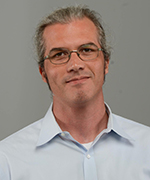
Matt Shipman, research communications lead, NC State University
We're entering uncharted waters in terms of the professional challenges facing science writers. At the same time, the need to communicate effectively is more important than ever. I'm a university PIO. I've also been a reporter and editor. I have friends who serve in other capacities as science writers. I think working together across these communities will be critical in successfully navigating the challenges ahead.
Ramin Skibba, freelance writer
When I attended my first Science Writers meeting in 2014, I loved how welcoming everyone was of me while I was just setting foot into my new career. Soon afterward, I embarked as a science writing student at UC Santa Cruz’s scicomm program. Six years later, I’m completing my term as president of the revived San Diego Science Writers Association (SANDSWA), and I’m looking forward to continuing my service for NASW’s board. Science writers and journalists of all stripes have many challenges and changes to face today, to which we have to add an economically debilitating pandemic. Freelance writers and parents like me worry about uncertain sources of funding and precarious working conditions, while overworked PIOs, staff writers and editors have plenty of uncertainty with their jobs as well. It’s a good time for us all to recognize each other’s struggles, have solidarity, and work together to improve our profession while providing opportunities and sharing resources with each other. I freelance for many outlets, including Scientific American, Nature, and Undark, and I write a wide range of space, environmental and policy-oriented stories. If elected to the board, I’ll continue my advocacy for freelance writers and do my part to make freelancing sustainable for newcomers and veterans alike in this evolving world of science writing. I’m excited to apply my experience at SANDSWA and NASW’s Freelance and Diversity committees to the board.
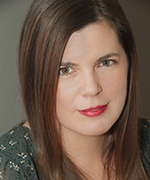 Sarah Zielinski, managing editor, Science News for Students
Sarah Zielinski, managing editor, Science News for Students
Science writers come in many forms: journalists, writers, bloggers, editors, PIOs, institutional writers, staffers, freelancers, and plenty of others who don’t fit into neat categories. Myself, I’m the managing editor of Science News for Students, and a writer and editor of science comics. One of the best parts of my 15-year career is the science writing community is that we are each other’s biggest fans, even when we’re competing against one another. I’ve been a member of NASW for most of my career; I am now co-chair of the Membership Committee and am finishing up my first term as a Board member. A big challenge NASW now faces is bringing more of the science writing community under the umbrella of our organization. I’ve worked toward that goal by negotiating new benefits for members to make membership more attractive. And I’m part of the working group that will focus on this issue later this year. But there’s plenty more that NASW can be doing for its members, especially now. Science writers of all types have been hit hard by economic uncertainty. NASW must figure out how best to help our members weather this period. What exactly that help will look like is hard to predict. What I do know, from hosting Science Writer 4 Hire (the editor-PIO-freelancer meet-and-greet) and from my experiences on the Board, is that good things happen when you put people with a common goal in the same room.
